Arthur Rimbaud’s Revolt for the 21st Century
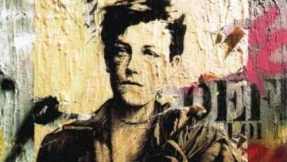
Arthur Rimbaud is often called the “infant Shakespeare,” and is one of France’s most influential prodigal poets. He was born in Charleville, France, which is near the Belgian border, in 1854. And although dead at 37 due to cancer in the knee, he wrote some of the most stunning and memorable poetry, all before the age of 20. He had envisioned himself being the “seer” of his age in his early teens, as we see from his letters, but after his great productive period between 1870-1875, that gave us his major works Les Illuminations and Une Saison en Enfer, Rimbaud entirely quit the poetic enterprise to become an extensive traveler and trader. Although less known during his lifetime, and perhaps disillusioned with his own poetic worth during his life, Rimbaud’s life and work have gone on to influence countless artists since, from Jim Morrison to Benjamin Britten, and can continue to influence us today.
The fire of Rimbaud’s revolt is never quelled. Citizens of the West, thoroughly entrenched in the smog of industry, ever advancing towards the never-ending ideal of progress, are living with the constraints and conditions Rimbaud’s poetry evoked at the end of the 19th century. We are in the swamp of “ennui,” as Rimbaud had forecasted, eagerly awaiting some kind of revolutionary flood that purifies in its destructive anarchic beauty.
Are these the words of an untaught, unschooled, rebellious adolescent admirer? Perhaps. But they are also the words that Rimbaud would have liked to see still being printed today, for they embrace the blood, the torment, the sweat, and the vigor of life which his poetry sets all young men and women on fire with. As we stand before the dazzling screens of modern technological innovation, tethered in the capitalist greed game of ever expanding competition, a poet like Rimbaud might seem inconsequential. But nothing could be further from the truth. One of the greatest questions we should ponder over is if industrialism has sufficiently fulfilled our desires as human beings for happiness. Or, has industrialism only proved to convolute our desires and understanding of existence, leading to an ever increasing epidemic of Western malaise, depression, and anxiety. Rimbaud’s poetry can help us ask these questions with greater clarity.
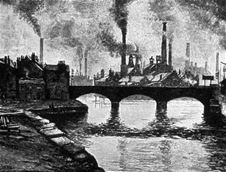
Perhaps no one better foresaw the spiritual malaise Western society has built for itself than Arthur Rimbaud. He fulfilled his role as a seer even if he did not see it himself, and his poetry is a testament to this. In deeply considering Rimbaud, we shall be considering not merely the torment of a poet’s rejection of the poetic enterprise, but also the spiritual torment Western culture and industry have imbedded in the soul of each and every one of us. We shall disprove the claim that Rimbaud is merely “…a callow youth, who constantly mistakes his desires for truth, his impatience for persecution, and his raw ability for wisdom. His worth ultimately lies in being able to present these limitations in such a grand and convincing manner” as has Rob Woodward exclaimed (Woodward Web). We shall disprove the fact that Rimbaud’s life and poetry are simply those of a callow youth by focusing on just what Rimbaud’s Une Saison en Enfer says about this Western spiritual malaise, and how Rimbaud offers a viable diagnosis of the ills of modern man.
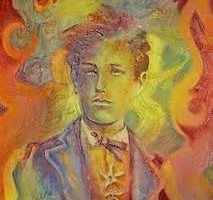
Une Saison, of course, is a record of Rimbaud’s own personal torment in the recognition that he could not be the “seer,” inventing a new language for a new age of man, which he had envisioned himself to be. But Une Saison is also a record of our own spiritual strivings and torments within Western industrial society. In the following essay, we shall take a look at passages from the latter half of this work pondering over what Rimbaud saw in the modern Western mind, and what the implications of his proposed treatments, if any, are. Quotes will be posted in original French with Oliver Bernard’s translations following.
Perhaps the greatest place to see this “why” of the Western industrial project is when Rimbaud himself explicitly says: “pourquoi un monde moderne, si de pareils poisons s’inventent!” (“Why a modern world, if poisons like this are invented”) (Rimbaud 339). The poisons referred to here are listed as the “brume” (“fog”) of industrialism as well as drunkenness, tobacco, ignorance, and devoutness that industrialism exacerbates (Rimbaud 339). These byproducts of industrial society are contrary to the ideal of progress Rimbaud had envisioned for the new era of progress, like a “Noël sur la terre” (“Christmas on earth”) in which we would worship a new kind of Übermensch that would be “la fuite des tyrans et des démons, la fin de la superstition” (“the rout of tyrants and demons, the end of superstition”) (Rimbaud 343). But, of course, this was a kind of Edenic and youthful fantasy, a fantasy Rimbaud does not deny nor shirk away from throughout his season in Hell. Although he fantasizes about the wisdom of youth and the East in the “L’impossible” section, and although he notes that his own sickness and malaise comes from the Western influence of industrialism, materialism, science, and Christianity, he also allows Westerners no escape from the torment into which we are born: “Philosophes, vous êtes de votre Occident” (“Philosophers, you belong to your West”) (Rimbaud 340).
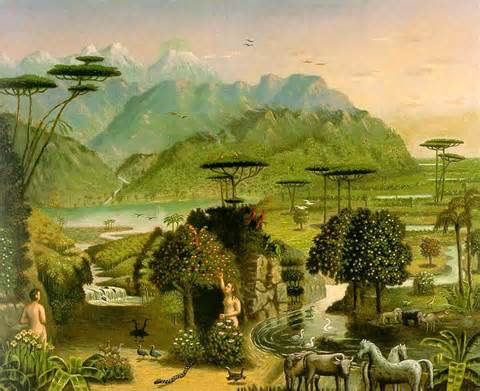
All of these musings lead towards one of the greatest insights from Rimbaud’s work, an insight that might be even more beneficial for our technological age than it was in Rimbaud’s time. Rimbaud notes “je vis que tous les êtres on tune fatalité de bonheur: l’action n’est pas la vie, mais une façon de gâcher quelque force, un énervement. La morale est la faiblesse de la cervelle” (“I saw that all beings are fated to happiness: action is not life, but a way of wasting some force, and enervation. Morality is a weakness of the brain”) (Rimbaud 334). Perhaps there is no greater paradox in life, not only for Rimbaud’s ambitious spirit but for all of us, than that the very striving for happiness is our greatest barrier to contentment in life. It seems that we are more human “doers” than human “beings.” We are fated to do, for in our action we derive our sense of being, and yet in acting we exhaust our spirits. All action is merely a dispensation of energy, as Rimbaud notes, an energy that certainly has created the great material comfort and material power of Western industrial society, but has also created the torment, the spiritual torpor, the neuroses, the endless running around, and the colonizing of the West. Indeed, this very running around has created the season in Hell from which the real happiness we desire is obstructed and exasperated. Progress pushes us on towards a future happiness that can never be realized in the here and now.

Rimbaud himself, in the concluding sections, notes this spiritual torment of never ending action towards an unending progress when he inverts the traditional Ecclesiastical teaching that “all is vanity” with the new teaching of Western progress: “Rien n’est vanité; à la science, et en avant!” (“Nothing is vanity; to knowledge, forward!”) (Rimbaud 341). This is a teaching, however, that seems to only lead towards spiritual paralysis: “Qu’y puis je? Je connais le travail; et la science est trop lente. Que la prière galope et que la lumière gronde…je le vois bien. C’est trop simple, et il fait trop chaud ; on se passera de moi. J’ai mon devoir, j’en serai fier à la façon de plusieurs, en le mettant de côté” (“ What can I do about it ? I know what work is ; and science is too slow. That prayer gallops and that light grumbles…I see it clearly. It is too simple, and the weather is too warm; the will do without me. I have my duty, and I shall be proud of it in the way that several others are, putting it aside”) (Rimbaud 341). Rimbaud, the young man who wanted to become the seer of the West, has now shelved his spiritual project. The feelings stirred by this unforgettable passage still send shockwaves in the hearts of millions of readers, and not merely because of the ingenious metaphorical and technical skill of this infant Shakespeare, but because of the clarity of his vision, and the haunting renunciation of poetic enterprise in Rimbaud’s later life. If progress pushes poets out, how is man to express himself amidst the concrete and steel of this new strange world?
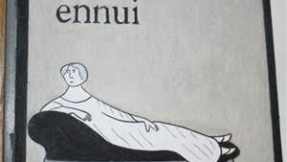
Indeed, if one does not see the seer in Rimbaud from anything thus far, just look at the next paragraph in this section keeping in mind the endless diversion of modern society: “Ma vie est usée. Allons! Feignons, fainéantons, ô pitié! Et nous existerons en nous amusant, en rêvant amour monstres et univers fantastiques, en nous plaignant et en querellant les apparences du monde” (“My life is worn out. Come ! let us decieve, let us do nothing, O the pity of it ! And we shall exist by amusing ourselves, by dreaming of our monstrous loves and our fantastic universes, complaining and quarrelling with the world’s outwards shows”) (Rimbaud 341). All the Western stage upon which we work, as Rimbaud predicted, is a fabulous opera without any need for the deeper spiritual penetration of the seer’s vision. The profound seas are swept up in the pragmatism of the burgeoning cities, the surface and costume, and the material prize goes to the man who best enters the material ideology with greatest zeal.
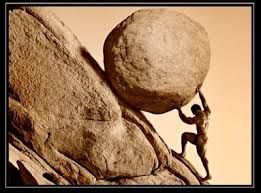
This is quite a barren picture of the world and a somewhat gloomy forecast, at least aesthetically, for the spirit of Western society. And although Rimbaud recognizes the falsity and the deception of the industrial world, he, in the end, clearly enters the cities, as he notes in his “Adieu:”
“Point de cantiques: tenir le pas gagné. Dure nuit! Le sang séché fume sur ma face, et je n’ai rien derrière moi, que cet horrible arbrisseau!…Cependant c’est la veille. Recevons tous les influx de vigueur et de tendresse réelle. Et à l’aurore, armés d’une ardente patience, nous entrerons aux splendides villes” (“No hymns : hold on to the yard one has gained. Severe night ! the dried blood smokes on my face, and I have nothing at my back but that horrible stunted tree ! …Still, now is the eve. Let us receive all influences of strength and of real tenderness. And at dawn, armed with a burning patience, we shall enter into the splendid cities” (Rimbaud 346).
What else do we now have to look forward to but science and cities; drunkenness and tobacco, in this vision? In Rimbaud’s vision we have entered into a new kind of slavery, but perhaps not without hope. But Rimbaud was not a supreme pessimist, for he still exhorted us to embrace life as it is: “Esclaves, ne maudissons pas la vie” (“Slaves, let us not curse life”) (Rimbaud 343). The tree of Eden is stunted, and is no longer of use for the human community because it has lost its mythical hold over people. Rimbaud tried to give us a “Génie” for the modern era, a kind of Übermensch in his poems and in his life, but, in the end, the task proved too formidable for him. Rather than fall into the madness or isolation, Rimbaud enters the material world, travels, and trades in his final years. A sober consolation, perhaps, for those concerned with the poetic voice of humanity.
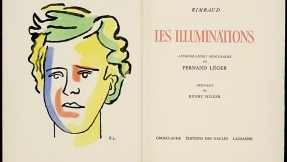
So, we are still left to wonder, then, what are we supposed to do with this world in which we live and work and with Rimbaud’s legacy? With the industrialism of the West taking over in the age of globalization, Rimbaud’s poetry still holds great importance in thinking through these tough questions of what we are trying to accomplish in mechanized life and in examining just what it is we are doing to our species in inventing a never ending wheel of competition and progress. Rimbaud does not seek an unrealistic reversion to primitive man, but rather a revision of our spiritual questing. Through his Illuminations and Une Saison en Enfer he has left us haunting visions of industrial paralysis, but also one of the most enduring attempt to make a modern god out of the ideal of progress. The paradox he clearly brings out in his Saison en Enfer is that action is not life, and that the striving for happiness only brings us to the spiritual malaise we currently reside in. Indeed, this never ending quest towards perfection and a seer-like vision seems to have tormented Rimbaud to his core, leading to his own refusal to strive anymore towards becoming the poetic seer of his age. Whether or not Rimbaud found enlightenment after putting down the pen, if he realized it in his Illuminations and Saison en Enfer and yet did not see it, or if we have found enlightenment since his time, is very much up for debate. I, meager writer that I am, have only scratched the surface of this debate. But it is a debate we should continue to have, and Rimbaud is a poet we should continue to read, because, as critic F. C. St. Aubyn clearly states: “The aspirations and defeats of this teenager are those of every man and no man. His private hell and private heaven have become a public domain by means of which we see ourselves a bit better. If we do, then “this absurd undertaking” was worth all it cost Rimbaud, and it cost him everything. Who now is willing to pay so dearly?” (Aubyn 177).
Works Cited
Rimbaud, Arthur. Arthur Rimbaud: Collected Poems. London: Penguin Books, 1986.
St. Aubyn, Frederic Chase. Arthur Rimbaud. Boston: Twayne Publishers, 1975.
Woodward, Rob. “Rimbaud was no genius.” 11 February 2008. The Guardian. Web.
<http://www.theguardian.com/books/booksblog/2008/feb/11/rimbaudwasnogenius>
What do you think? Leave a comment.











rimbaud is comfort reading for the soul. i fell into reading him on accident, i was talking about poetry with a friend and he happened to mention that this was his favourite poet.
It’s difficult for me to explain why I love a poet, or a specific poem. I feel transported, or full of life or anger, or just an emotion that previously hadn’t consumed me, for the duration of my reading and for some time beyond. I’m stuck in that space that the author has written and it feels for a time like I want nothing more than to drown in that emotion. This is why I read Rimbaud, all the time.
Very well researched piece, thank you. He is one of those literary figures that I find myself coming back to from time to time and always developing a new fascination and affection for.
Always experienced his writing incredibly emotional and beautiful.
The issue I have with Rimbaud is that you can not read his poetry without knowing at least some of his backstory.
This was a really interesting article. It’s great learning about people and poets you’ve never heard of before! Enjoyable read! Thanks~
It’s great to hear people excited about Rimbaud, our boy prophet ;^|
What a wild poet, completely modern, youthful and full of energy. It’s surprising they don’t teach him in, like, high school. Kids would love it.
Rimbaud’s writing is very beautiful (of course) and very sad.
Interesting article. It helped me rediscover my love and appreciation for Rimbaud and his marvellous poetic hallucinations.
if there’s anything in being a ‘lord of language’ it’s Rimbaud. The poems don’t work on your conscious mind, though if you want to parse out the pattern of his imagery and references and style, you can.
He hits you between the eyes with his visionary attitude, rebellion, braggadoccio, and prodigiosity.
Violently sensual, wickedly tender, stupidly erudite, insanely rational…..
he’s worth fucking up your mind over.
“Derangement of the senses”- yes, please.
Rimbaud is one of my favorite poets!!
I’d never read anything by Rimbaud (maybe a poem or two in high school? I can’t recall…)
I don’t think that all of his work is to my taste but enough of it is to keep me reading this work.
I love this maniac!
I have really fond memories of finding Rimbaud. I was killing time in one of my favorite small bookstores before I was to meet friends and wound up in front of the poetry shelf on the second floor. His name sounded familiar to me and the rest is history.
Very nice article, insightful and well-researched! It’s great to see people are still excited about Rimbaud and old/ foreign literature. His poetry is unique, so full of colours and images and with an ever-lasting taste of bitterness while being very lucid on our world. A solid first article on a great poet!
Extremely informative and entertaining piece! You did a very good job of weaving in Rimbaud’s own poetic bursts of lamentation (about a future ripe with modern misery.) And I like the picture of Sisyphus since Rimbaud did anticipate existentialism by at least several decades. And surrealism for that matter.
“this absurd undertaking” 🙂 Rimbaud, the most talented poet.
I always wondered what is it that almost drags me to this so called “maniac”. At 40 now having defeated Rimbaud by age, I believe firmly that it was the power of discovering this genius in every letter and its effect that led me to him. The article brilliantly highlights all the major aspects of Rimbaud’s life (or Lives) and writing.
I think you’ve pegged Rimbaud (if that’s possible) with these two sentences
Perhaps no one better foresaw the spiritual malaise Western society has built for itself than Arthur Rimbaud. He fulfilled his role as a seer even if he did not see it himself, and his poetry is a testament to this.
There’s also the theory that his retirement from poetry at 19 – and subsequent gun-running – was fueled by him seeing too clearly the problems of the world.
I think that given the life picture that you have painted of Rimbaud, I would not describe him as a French Shakespeare but rather a French Keats.